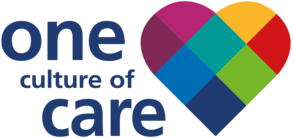As end-user training bookings continue to flood in - more than 3000 colleagues - so far, this week we hear from two of our EPR Friends.
Staff Nurse Lisa Pollard and HCA Michelle McSheffrey (pictured) tell us about why they got involved and their take on it all.....
Full name and job title:
Lisa Pollard (LP), Staff Nurse on Acute Medicine at CRH.
Michelle McSheffrey (MM), healthcare assistant at haematology outpatients at HRI.
What inspired you to become an EPR Friend?
LP - Technology-wise, I’m quite good and people come to me at work with various problems on the computer and my manager knows that, so she asked me to be an EPR Friend. I was really happy to do it as I wanted to be part of the process.
MM - We’re a small team and we all muck in together doing various roles. Everybody does a bit on the computer, patient care, and clinic, so it’s nice that somebody will be able to pass EPR information on to everybody else. My team is willing to all listen to and learn from each other.
What are you most looking forward to when EPR goes live?
LP - Knowing that I know the system, and people coming to me for any problems. It’s quite a big thing and I’m proud that I’ll be able to help people.
MM - Access to patient information. EPR will make this much easier for us. When the system is up and running it will be brilliant. At the moment, if one of our patients has been to A&E we can’t see that on the system, so we can’t see what’s been done so far, and with EPR we'll be able to see their full notes. It’s also linked to GPs so that will help with medicines for our elderly patients. I just think it will be a really good thing for our Trusts.
What is your main concern about EPR?
LP - I was worried that there wouldn’t be enough floorwalkers in each area if anything happened. I work nights and I’m hoping there’s going to be enough people around on a night to help. But I know there will be plenty of people supporting us through go-live and beyond - even on nights.
MM - People might struggle to put information on the system at first, but that will be fine once we’re all using it - and that's why there will be all this support on offer. I know that people are concerned if anything happened but we’ll have a backup.
What is your favourite part of your job and how do you think EPR will affect this?
LP - I love caring for patients. I work on a really busy ward and I don’t want to have to sit behind a computer to input information as that would take away from patient care. For me, patient care is vital. The trainers have said that when we go live the floorwalkers will show us how to input information quickly so that it doesn’t take anything away from patient care. I’m impressed and excited. I hope people aren’t going to be scared, and that they will embrace it. It is a good thing.
MM - My favourite part of my job is the patients. We get to know our patients really well and I don’t think EPR will affect that one bit! Our patients are with us a long time because of their illnesses and EPR won't affect that, but it will be nice to have extra knowledge and to learn, which is why I wanted to be an EPR Friend.
Alongside floorwalkers and representatives from Cerner, who built the system, our EPR Friends will be crucial to the success of the rollout.
They will act as a first line of support for colleagues during go live and are will pass on important information about EPR. We have almost 600 colleagues across our Trust in this role, and they'll all play a vital part in supporting colleagues as we move into go-live and beyond.
** EPR has a robust back-up system, known as 7-24. Dr Paul Southern from Bradford explains more in this article about it and the fact it will be covered in training too.


